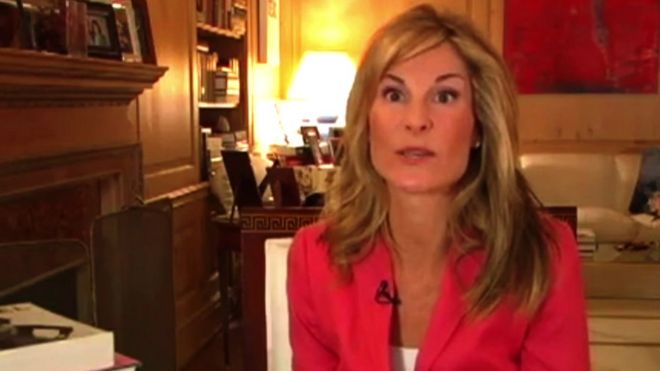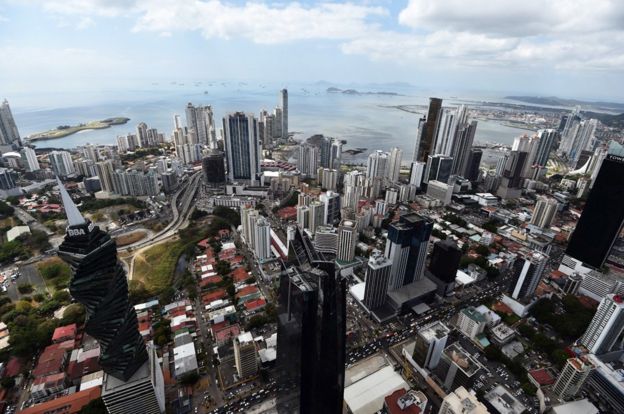-
Posts
4,539 -
Joined
-
Last visited
-
Days Won
88
Content Type
Profiles
Forums
Blogs
Events
Gallery
Posts posted by Keith Woolford
-
-
3 hours ago, JudyS said:
Thanks for the info. I will pass it on to her. The original attorney now has all the papers. Hopefully if she changes attorneys, he will turn them over. She isn't selling the house, she is just transferring it into her name. I think her attorney is jerking her around. Why should the value of the house have anything to do with this? It should just be a fee for service plus any filing fees.
"she is just transferring it into her name" ..from a person who is no longer breathing.
Makes it a bit more complicated.
-
David, I would suggest that you send them a personal message.
-
-
Bud Smith was fun to be around ..an interesting guy with an anti-establishment bent.
A small decal on the back of his Toyota pickup read ROLLS and he had a single tattoo on his leg that spelled TATTOO.
RIP Bud.
-
This is one of the BBC stories published today after investigation of the leaked documents. http://www.bbc.com/news/35956324
Panama Papers: How a British man, 90, covered for a U.S. millionaire
By Richard Bilton BBC Panorama
Ms Olszewski is a money expert and life coach
The Panamanian law firm Mossack Fonseca says it does everything possible to ensure the offshore companies it sets up are not used for illicit purposes. But documents seen by the BBC show that isn't always true. One of the clearest examples of how the company breaks the rules involves a 90-year-old British man and an American millionaire.
Eight years ago, business guru Marianna Olszewski had a problem.
The author of Live it, Love it, Earn it (A Woman's Guide to Financial Freedom) offers financial advice directed at American women. Some of her personal fortune had been invested using a secret offshore company.
But in 2008, at the height of the financial crisis, she decided she wanted to get her $1.8m back.
The problem was that the bank that held the funds wouldn't release the cash without knowing who was behind the offshore company - and Ms Olszewski was desperate to keep her identity secret.
'Sensitive manner'
Mossack Fonseca was willing to help. It offered to provide somebody who would pretend to be the real - or beneficial - owner of the cash.
An email from a Mossack executive to Ms Olszewski in January 2009 explained how she could deceive the bank: "We may use a natural person who will act as the beneficial owner… and therefore his name will be disclosed to the bank. Since this is a very sensitive matter, fees are quite high."

Panama: Home to law firm Mossack Fonseca
She replied: "I do think we should go ahead with the natural person however I want to have your promise that you… will handle this in the most sensitive manner."
The "natural person" Mossack Fonseca offered turned out to be a 90-year-old British citizen.
Mossack Fonseca told Ms Olszewski that the service would be expensive because it was so sensitive. Fees were normally $30,000 (about £20,000 at the time) for the first year and $15,000 for every subsequent year. But she was offered a discount - just $10,000 for year one and $7,500 for every year after.
One reason for the high cost is likely to have been the degree of deception. Another email from Mossack details what would be involved:
"We need to hire the Natural Person Nominee, pay him, make him sign lots of documents to cover us, make him sign resignations, make him get some proofs evidencing that he has the economic capacity to place such amount of moneys, letters of reference, proof of domicile, etc, etc."
It's a blatant breach of anti-money laundering rules, but Ms Olszewski signed up anyway.
Andrew Mitchell QC, one of the UK's leading experts on money laundering, has no doubt the bank would have been deceived.
"Anybody looking at all these documents will believe that it is entirely legitimately owned by this person," he said.
"Mossack Fonseca are prepared to go to that length in order to assist their client. Basically creating a real, live human being to look to the world as if they own the assets, when in fact and in truth, they know, as their client knows, that that person is a sham."
The revelation that offshore companies are providing services of this nature could undermine the UK government's plan to create greater transparency.
UK Prime Minister David Cameron has pinned his hopes for reform on a new register that will force British companies to reveal their beneficial owners.
But the register won't work properly if companies like Mossack Fonseca pay people to pretend to be the beneficial owner.
Marianna Olszewski failed to respond when Panorama attempted to contact her about this story by phone, email and letter.
In a statement Mossack Fonseca said: "Your allegations that we provide structures supposedly designed to hide the identity of the real owners, are completely unsupported and false.
"We do not provide beneficiary services to deceive banks. It is difficult, not to say impossible, not to provide banks with the identity of final beneficiaries and the origin of funds."
-
Couldn't help but notice that BN is running a bad English translation of a report in Spanish of this story that was originally published in English.
Consequently, billion$ are inaccurately stated as million$, etc.
-
Mr. Mossack is credited for his legal genius in this bio. His father was in the German SS before coming to Panama to spy on Cuba for the CIA.
https://en.wikipedia.org/wiki/J%C3%BCrgen_Mossack
Mr. Fonseca was recently removed as advisor to the President and head of the Panamañista political party. He is also an award-winning novelist
-
At least one of the principals of the law firm owns properties in Boquete.
-
Central American towns are almost always laid out in a North-South fashion, but not so in David. This makes it more difficult to follow maps.
Calles are lettered and Avenidas are numbered, starting from the central Park of the town.
Calle and Avenida '0', which would run right alongside the Park, are usually called Calle and Avenida Central
-
Centro de Repuestos Chiriqui or CRC is located on Calle F Sur*, on the opposite side of the street approximately midpoint between the Nissan and Mitsubishi dealers.
They sell OEM auto parts and supplies. The trim shop next door is CRC Racing.
*Calle F Sur is also known as Calle Miguel Angel Brenes.
-
8 minutes ago, Lanecito said:
My US tax attorney tells me that as an expat, I have until June 15 to file.
This person has special needs.
-
 1
1
-
-
1 hour ago, Pantah said:
Keith, Thanks for providing the law expanding the definition Article 43.7 clearly states 'return passage to country of origin or residence'. This person had Mexican residence, and a ticket to Mexico was not acceptable, contrary to the law you cited.
This is not about me. I applied for pensionado status in 2005. This is a heads up about how things work here. Brundegabe pointed out the same. It comes with the terratory. It is in my opinion not good for the tourist industry, but that is another thread, Again, for me just advising people that may be affected by this. I have a few friends that I will advise, as it will affect them.
No problem ..a good heads up and folks should plan accordingly.
I was just pointing out that the land entry rules haven't really changed since I arrived years ago. It's how they're applied that varies.
It would seem that enforcement of regulations at border points becomes stricter during migratory crises. The last time I remember a clampdown was a few years back when there were busloads of illegal workers entering from Nicaragua and points further north. At this time I believe there's still a major Cuban refugee issue.
In my opinion, the '180 day maximum allowable stay' (by decree) for visitors is a real bonus that people sometimes take for granted. Costa Rica, for example, allows only 90 days.
Also ..I'm fine with people hopping if they want to.
-
 1
1
-
-
Panama Immigration can apply their regulations when and as they see fit and can even refuse people entry if they want. It's just that they are not following them in the manner you'd like them to.
Where does it say in the Act that a person can leave the country and be immediately re-admitted?
'Those who are passing through'? The term 'onward travel' gets thrown around a lot in these discussions.
Every traveler has to return to his country of origin or residence eventually and should be able to provide an itinerary for it ..otherwise they're not a traveler.
Bouncing back and forth between two countries without having residency status in either, isn't it.
-
 1
1
-
-
Probably better to defer to the information on Panama's own immigration website rather than those of foreign governments.
Article 43.7 clearly states 'return passage to country of origin or residence'.

-
 1
1
-
-
On 3/31/2016 at 6:29 PM, BBriand said:
I plan on applying for permanent residency in Panama. I have been here since October and am always told that there are a lot of Canadians. Most of the information posted is focused on Americans. I would like to get a Canadian's point of view and any special issues that they have faced when applying for a residence visa.I know the Canadian health insurance will have different requirements. Any advice and suggestions would be appreciated. Thank you
hi Barbara, here's a few things you may find helpful.
Any documents from Canada which you provide for a residency application will have to be notarized and then sealed by the Ministry of Foreign Affairs in Ottawa. This is because Canada is not a party to the Apostille agreement, established in the early 60's, which provides for a universal standard of authenticating documents.
Most people access their Canadian pension income by having it deposited directly in their Canadian bank account and withdrawing cash here via ATM.
There can be a 25% withholding tax applied to Canadian income if Non-Resident status is not declared. http://www.cra-arc.gc.ca/tx/nnrsdnts/ndvdls/nnrs-eng.html
The Canadian Embassy is very helpful if a citizen requires assistance.
The Canadian health care system is not accessible here.
Meanwhile In Canada
Spring has arrived
-
-
Don't know much about weather except what I see and feel. Having come from the lands of 4 seasons, I relate the period we are in now as an autumn prelude to winter.
Rainy winter weather from the Pacific is still being held back by summer winds that come from the Caribbean.
-
Uber drivers are classified as pirates in Panama
-
11 hours ago, JudyS said:
I look at ning to go to the archives of past years and find information I need. Yesterday I found the location of Casa de Cerdo (the pork place in David) from a post written by Lee. Also the classified ads are useful. Ning has improved since its chaotic transformation after Lee died. Occasionally there's even a post that wasn't created by Olga.
The directions to Casa de Cerdo and Su Carne were posted here about 3 months ago by Penny.
Quote-
 1
1
-
-
$27 for that ride seems expensive to me.
Costa del Este is not all that far from Tocumen.
-
It's not difficult to see why you find the topic interesting, Roger.
When someone suggested recently that I write a book about the adventures and misadventures of expats here I asked them how many volumes they wanted.
-
 3
3
-
-
Inquisidora Nacional
-
 1
1
-
-
If I'm not mistaken you can get raw molasses by the bucket for next to nothing at the Tia Maria refinery ..west of Pricesmart on the PanAmerican Highway.
Folks use it for composting.
-
7 minutes ago, David van Harn said:
Stumbled on the photo at a old "library" page about Panama coffees at the Sweet Maria's Coffee website. The photo is near the bottom of the page. The discussion seems to range in dates from 2002-2006.
The plaques beside the door in the photo clearly state Boquete so it had to have been here at one point.





The "Panama Papers" aka "Pandora Papers"
in Corruption, Fraud, and Scandals - Investigations / Prosecutions
Posted
Too much coconut oil last night?
Where's the reference to condemnation of Panama by the U.S. ?